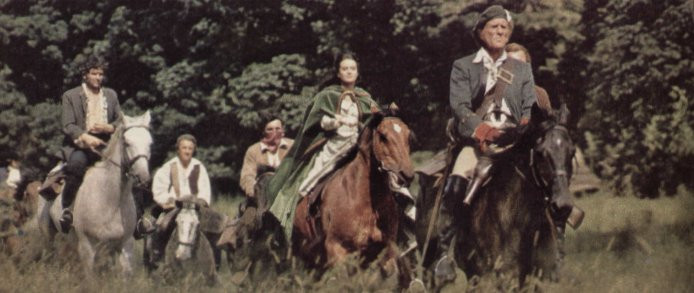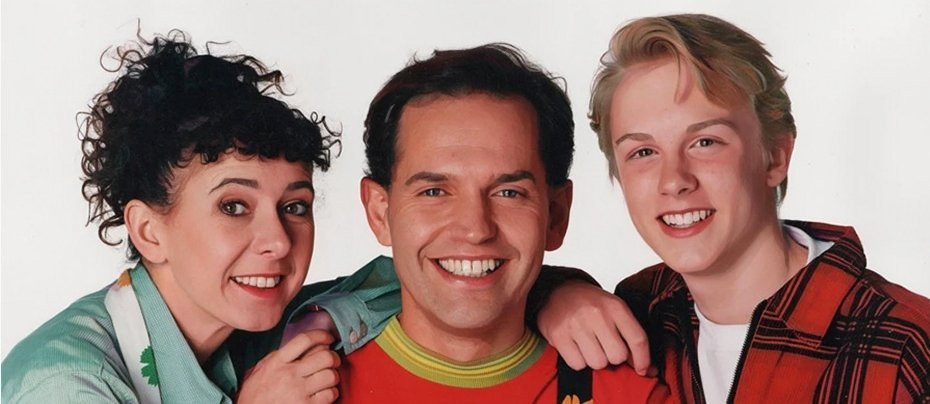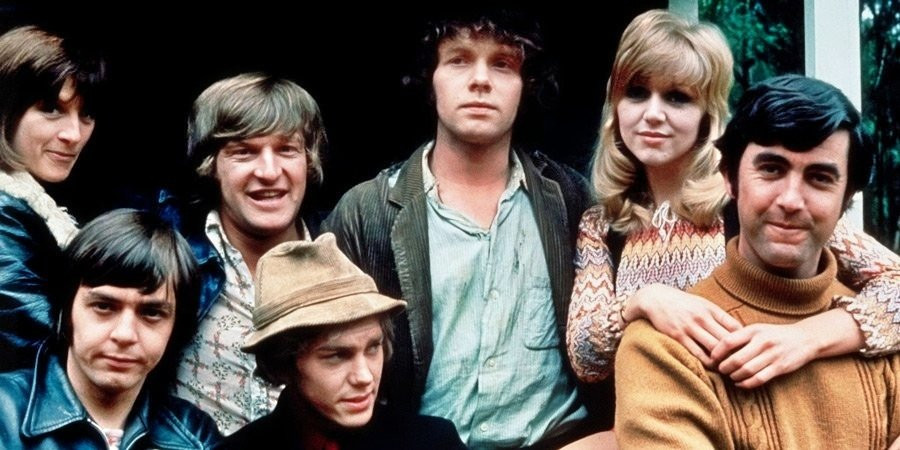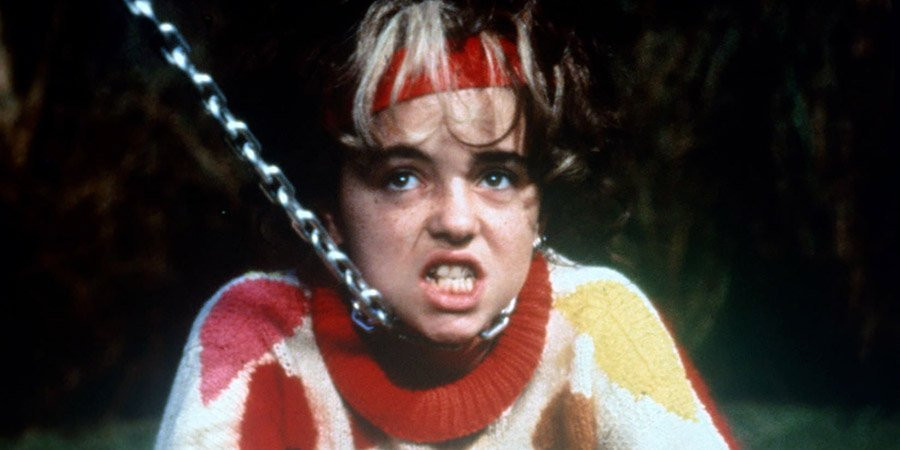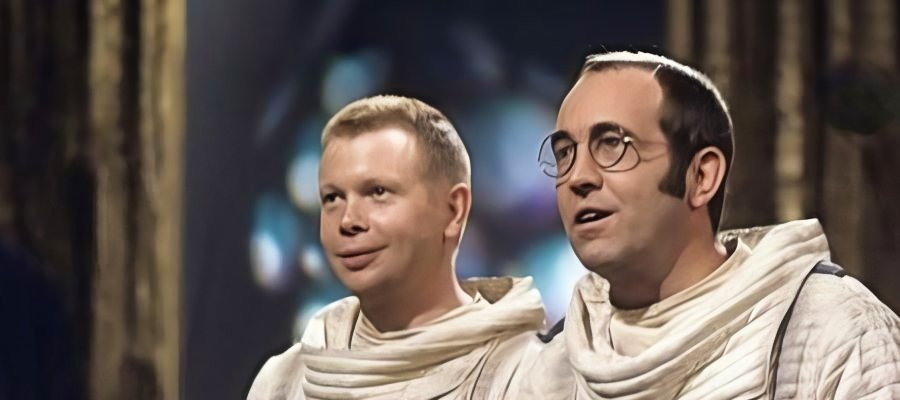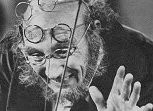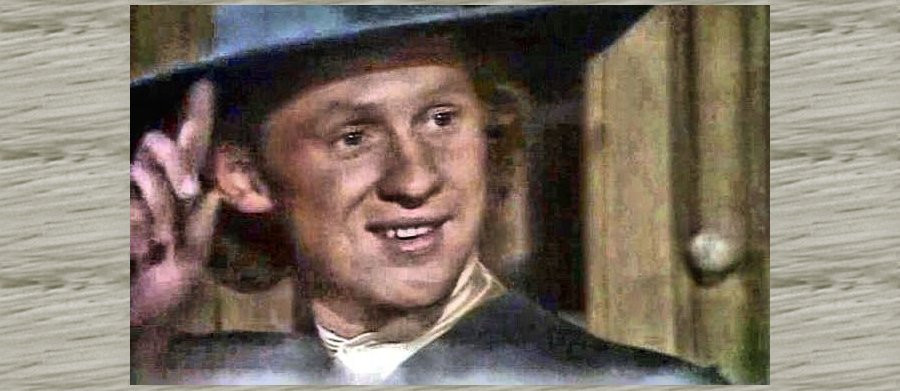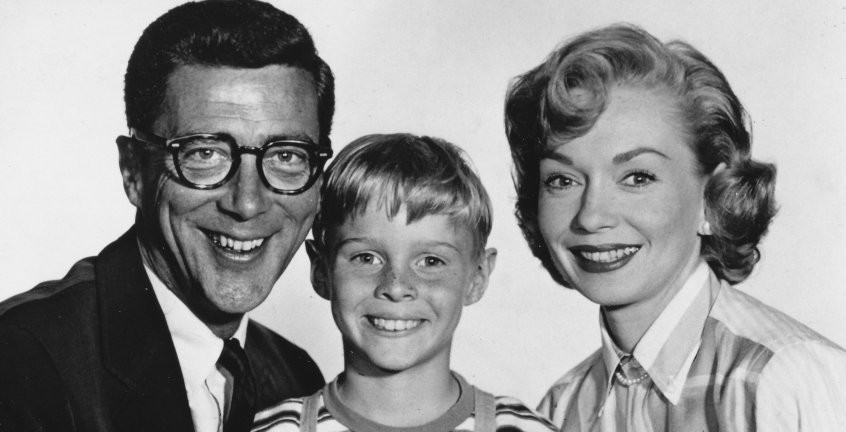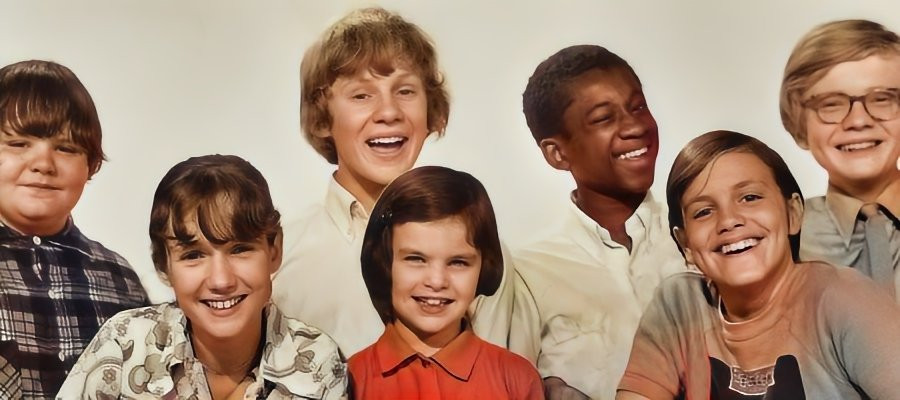
Here Come the Double Deckers!
1970 - United KingdomHere Come the Double Deckers! is a delightfully chaotic blend of British charm and American gloss, a children’s television series from the early 1970s that has earned a modest but fond place in the hearts of those who remember it.
The series follows seven spirited children as they get into all sorts of adventures from their secret clubhouse: a bright red, full-sized London double decker bus hidden away in a junkyard, accessed via an elaborate and comically over-engineered entrance system. The only adult in on the secret is Albert (Melvyn Hayes) the street cleaner. With its catchy theme tune “Get on Board”, performed by Hayes, Harry Booth, and Johnny Arthey, and a sprightly score by Ivor Slaney, the show, created by Booth and Roy Simpson, wastes no time establishing its upbeat tone.
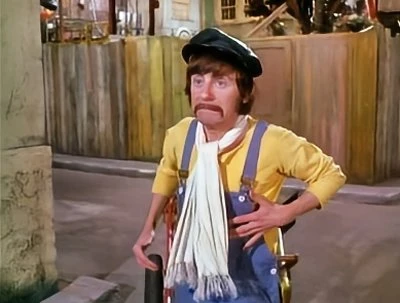
The idea behind the show was to revive the spirit of the 1930s series Our Gang for a new generation, and in many ways, it succeeds – with a touch of slapstick, a lot of heart, and a generous dose of singing and dancing. Some of the cast had appeared previously in The Magnificent Six and 1/2, another Simpson and Booth collaboration made as a film serial for the Children's Film Foundation, which was very similar to the Double Deckers. After the success of the first series in 1968, Booth and Simpson sought to create a similar show for UK television. They pitched the idea to various companies, including the BBC, but were repeatedly turned down, with the companies deeming the slapstick style outdated. However, by the end of the year, the BBC went on to produce its own version, Adventure Weekly.
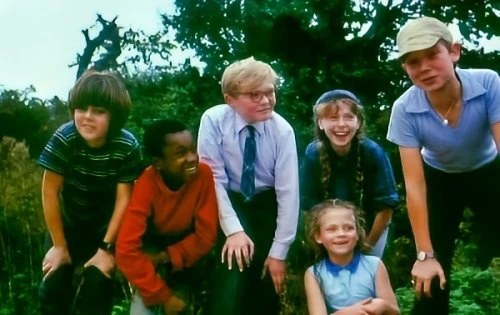
The Magnificent Six and 1/2 essentially acted as a blueprint for Here Come the Double Deckers!, setting the tone for the energetic ensemble work later. The film serial also featured several gags and plotlines that would later be reused in the TV series.
In the end, Here Come the Double Deckers! went ahead as a joint collaboration between the UK’s independent Century Film Productions (helmed by Booth and Simpson) and the US-based David Gerber Productions. The series was distributed in the US by Twentieth Century Fox, marking what may well have been the first British children’s TV programme to be fully networked across American television.
The programme made its US debut on 12 September 1970 at 10:30 am ET on ABC, and in the United Kingdom it began at 4.55 pm on 1 January 1971 on BBC1. The series was repeated in the UK by the BBC until 1977, and then during the early 1990s on a number of ITV companies. Each episode was around 22 minutes long.
One of the most notable aspects of Double Deckers, because of the overseas investment, is the clear American influence. From the inclusion of an American cast member among the otherwise British troupe, to the adoption of American cultural elements such as Thanksgiving, baseball, and even calling sweets ‘candy’, it’s evident that the series was shaped with international appeal in mind. Interestingly, the children’s costumes were provided by the American department store J.C. Penney, lending a distinctly transatlantic look to the gang.
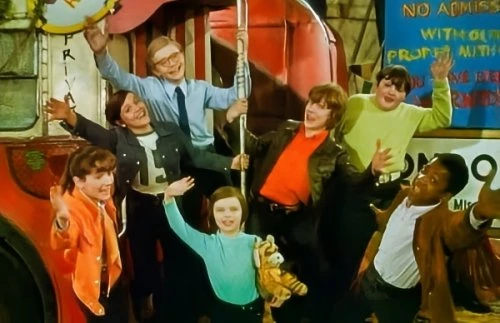
The children are Scooper (Peter Firth) – The group’s self-appointed leader. Peter Firth would go on to have a successful acting career, including roles in Equus (for which he received an Oscar nomination), Spooks, and numerous stage and film performances.
Energetic and lively, Spring was played by Brinsley Forde, who later gained fame as the frontman of the reggae band Aswad, and also appeared in the film version of Please Sir!.
Brains (Michael Audreson) was the clever inventor and gadget whiz of the group. Brains was always creating quirky contraptions to help the team.
Doughnut (Douglas Simmonds) was a comic character who was always hungry and often forgetful – especially when it came to the combination for the clubhouse door.
The no-nonsense girl of the group, Billie (Gillian Bailey) often brought a touch of practicality to the otherwise chaotic bunch. Bailey later appeared in Follyfoot and became a drama academic.
Tiger (Debbie Russ) was the youngest member of the gang, often cheeky and inquisitive. Debbie Russ was only about 10 years old when she played the role.
The American member of the gang was Sticks (Bruce Clark) – a drummer, hence the name.
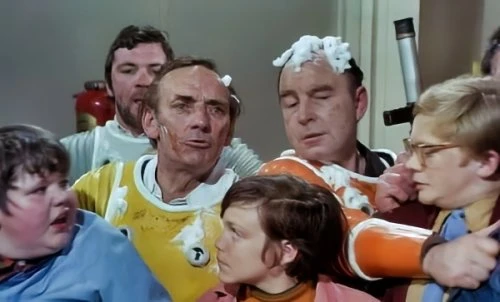
Filmed at Elstree, the production had the benefit of a generous budget, which was reflected in the elaborate sets and impressive roster of guest stars. As well as Melvyn Hayes, household names like Clive Dunn, Pat Coombs, Jane Seymour, Frank Thornton, Bob Todd, Liz Fraser, Graham Stark, Julian Orchard, Norman Vaughan and, of course, Sam Kydd made appearances, adding to the show’s polish and appeal. The children's comic Whizzer and Chips even ran a "Double Deckers" cartoon strip from 1971 until 1972.
Despite its promise, Here Come the Double Deckers! only lasted for 17 episodes, rather than the planned two series of 26-episodes each. Mixed reviews in the US and corporate upheaval at Twentieth Century Fox – notably the sacking of the show’s champion Richard Zanuck – led to its untimely cancellation.
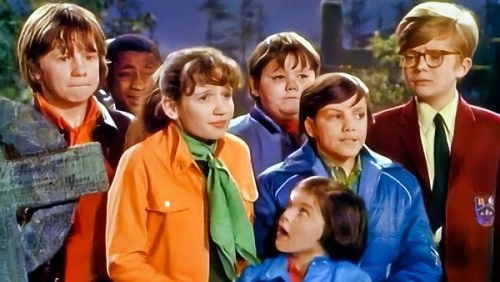
Nevertheless, what Double Deckers lacked in longevity it made up for in spirit. Each episode ends with the cheerful tune “See You Next Week”, a bittersweet sign-off now, given its short run. The show may have descended into well-meaning chaos more often than not (as seen when their attempt to help a neighbour, Mrs Vickers, nearly destroyed her home, or when their mischief at a nearby film studio caused unintentional havoc), but that was all part of the fun.
In the end, Here Come the Double Deckers! is a time capsule of 70s optimism, full of catchy tunes, slapstick gags, and boundless energy. It represents a rare cross-Atlantic experiment in children's programming, whose colourful legacy – like the bus they rode in – still rumbles on in the memories of those who climbed aboard.
Review – Laurence Marcus
Seen this show? How do you rate it?
Seen this show? How do you rate it?
Published on June 18th, 2025. Written by Laurence Marcus for Television Heaven.


